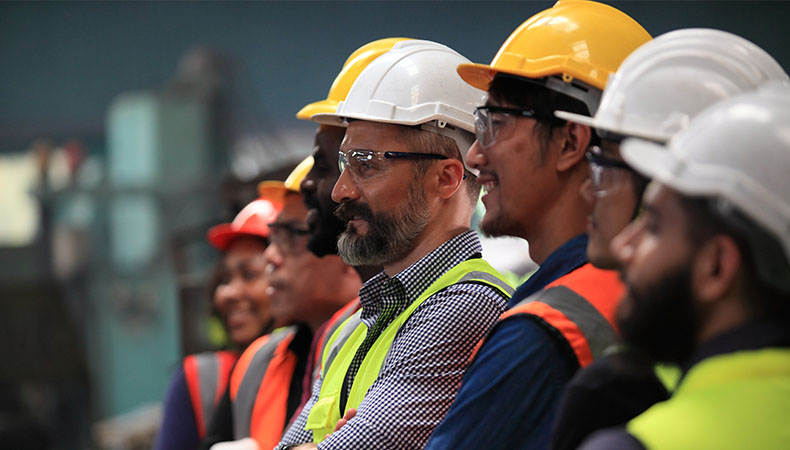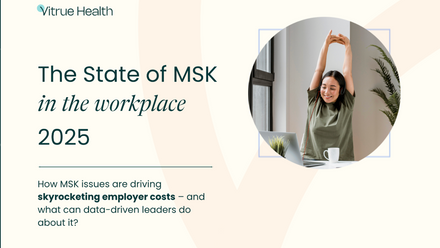Mental health strategies to enhance safety for line workers
While physical wellbeing is often associated with construction and labour jobs, the mental aspect has long been overlooked.
Line workers are the backbone of the construction industry, keeping projects moving with their essential, often physically demanding, work.
These roles come with unique mental challenges - frequent rotations, seasonal employment and high-stress environments that expose workers to potential injuries and other health risks.
Despite the growing conversation around workplace wellbeing, much of the focus has been on white-collar office environments, leaving the mental health needs of blue-collar workers largely unaddressed.
This is surprising considering half of all UK construction workers - approximately 1.5 million people - have reported working in dangerous conditions while struggling with poor mental health.
Addressing these challenges can make a meaningful difference in the lives of labour workers and can contribute to a more resilient, efficient workforce.
Burnout among line workers
Burnout is a state of physical and emotional exhaustion, often accompanied by feelings of reduced accomplishment and detachment.
In construction, burnout is intensified by the unique demands of the work.
The physical exhaustion from long hours and the mental strain from high-pressure projects create a challenging environment for construction workers, which can often lead to high turnover and growing absenteeism.
Recent research sheds light on the extent of burnout among construction workers:
- 13% of workers have experienced burnout
- 6% suffer from depression
- 18% struggle with sleep quality, impacting their overall health and concentration
- 44% feel "fatigued" or "very tired" at least once a week
The research above clearly demonstrates labour workers will face challenges with mental wellbeing at some point in their careers.
Knowing to spot the signs is important, as it can manifest in various ways, such as:
- Decreased work performance
- Isolation
- Disrupted sleep and appetite
- Irritability
- Weakened immune system
- Low moods and, at times, heightened cynicism
These issues don't just affect individual workers; they can create a ripple effect that impacts productivity, safety, and team morale.
And naturally, these strains are brought home, which can exacerbate emotions.
Addressing burnout is essential, not only for individual health but for maintaining a safe and effective work environment.
Importance of holistic wellness solutions
Breaking the stigma around mental health and burnout in construction is vital.
In an industry where a culture of 'toughness' and self-reliance can sometimes discourage open discussions, a company's wellbeing programme plays a critical role in shifting the narrative.
By prioritizing and normalizing mental health support, businesses can foster an environment where workers feel safe seeking help without fear of judgement.
When companies avoid addressing mental health, it often leads to higher costs in the long run, including higher turnover rates, lost productivity, and increased absenteeism.
A proactive approach to mental health, through a well-structured wellbeing programme, addresses stigma and can curb these unwanted outcomes.
According to the Return of Wellbeing Report, 95% of workers acknowledge that their emotional state significantly affects their productivity, and many are actively looking for resources to support their mental wellbeing.
This demonstrates that the need for support is there, but companies must help drive the initiative.
For line workers, wellness support needs to go beyond traditional mental health resources.
A comprehensive wellness solution should include physical health support, stress management resources, and resilience-building tools.
This, in turn, helps with:
- Higher job satisfaction: When workers feel supported in both their mental and physical health, job satisfaction increases, leading to a more engaged workforce.
- Reduced turnover: By addressing burnout and mental health proactively, companies can reduce turnover rates and retain skilled workers, which in turn reduces recruitment and training costs.
- Enhanced safety: Physical and mental wellbeing are essential for construction workers who perform high-risk tasks daily. A clear and focused mind helps prevent accidents, creating a safer workplace for everyone.
Providing wellness resources are most effective when accessible both near their homes, on-site and online, helping line workers maintain stability even with rotating schedules and remote job locations.
The benefits of providing wellness support for line workers go beyond reducing burnout.
A strong wellness programme can create a more resilient, safer, and more productive team, helping workers feel valued and supported.
Supplied by REBA Associate Member, Wellhub (FKA Gympass)
Making every company a wellness company.








